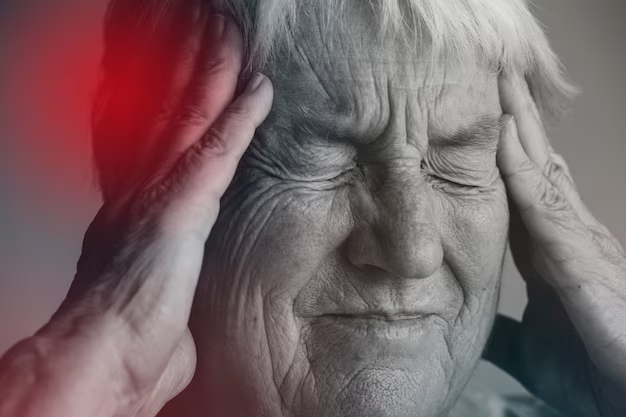Your Guide to Can Parkinson Disease Cause Dizziness
What You Get:
Free Guide
Free, helpful information about Parkinsons FAQ and related Can Parkinson Disease Cause Dizziness topics.
Helpful Information
Get clear and easy-to-understand details about Can Parkinson Disease Cause Dizziness topics and resources.
Personalized Offers
Answer a few optional questions to receive offers or information related to Parkinsons FAQ. The survey is optional and not required to access your free guide.
Can Parkinson's Disease Lead to Dizziness? Here's What You Need to Know
Parkinson’s disease is a progressive neurological disorder that is often associated with a variety of challenging symptoms, primarily affecting movement. However, one less-discussed symptom is dizziness, which can significantly impact the daily lives of those suffering from the disease.
Understanding Parkinson’s and Its Symptoms
Parkinson's disease primarily affects the nervous system and the brain's dopamine-producing neurons. As this degeneration progresses, it can lead to tremors, slowness of movement, stiffness, and balance problems. Although these symptoms are well-known, many people with Parkinson’s also experience dizziness and light-headedness. But why does this happen?
How Parkinson’s Disease Causes Dizziness
Dizziness in Parkinson’s patients often results from orthostatic hypotension, a condition where blood pressure drops significantly when a person stands up from a sitting or lying position. This drop causes a feeling of dizziness, faintness, or even blurred vision in some individuals.
This happens because Parkinson's disease can affect the autonomic nervous system, which controls involuntary bodily functions, including blood pressure regulation. Moreover, certain medications used in Parkinson’s treatment may exacerbate this condition, leading to more frequent or severe dizzy spells.
Managing Dizziness in Parkinson’s
If you're experiencing dizziness as part of Parkinson’s, there are several strategies to manage this challenge:
- Hydration: Ensure adequate fluid intake to maintain blood pressure levels.
- Stand Slowly: Rising slowly from a seated or lying position can help prevent dizziness.
- Compression Garments: Wearing compression stockings might improve blood circulation and reduce dizziness.
- Medication Review: Consult with a healthcare provider to review medications that may contribute to dizziness.
Managing dizziness effectively requires a comprehensive approach, but what happens when managing health becomes financially burdensome?
Seeking Financial Assistance for Parkinson’s Care
For many individuals, the costs associated with managing Parkinson’s disease, including treatments, physical therapy, and medication, can be overwhelming. Thankfully, there are financial aid resources available to support those managing health challenges:
- Medicare and Medicaid: These government programs offer financial support for healthcare services, which includes prescriptions, therapy sessions, and hospital visits.
- Social Security Disability Insurance (SSDI): Provides financial aid to those who are unable to work due to their disability, offering a stable income source.
- Nonprofit Organizations: Groups like the Michael J. Fox Foundation and Parkinson’s Foundation offer grants and resources specifically aimed at supporting Parkinson’s patients.
Exploring Educational Opportunities
For families and individuals seeking to gain further insight or pursue education in this area:
- Educational Grants: Programs are available to help fund studies in neurology or caregiving, providing an opportunity to understand and perhaps aid in the development of new treatments.
- Caregiver Training: Courses and certifications can greatly enhance the care and support provided to Parkinson’s patients, often supported by community scholarships.
Managing dizziness caused by Parkinson’s and finding financial relief doesn't have to be a daunting task. By utilizing available resources and seeking support, individuals can mitigate the effects of the disease and reduce financial stress.
🌟 Helpful Resources for Support:
- 🏥 Medicare/Medicaid: Financial aid for health services
- 💰 SSDI: Income support for disabled individuals
- ❤️ Nonprofits: Grants and resources for those with Parkinson’s
- 🎓 Educational Grants: Scholarships for studying Parkinson’s-related fields
- 👨⚕️ Caregiver Training: Enhancing care through supported education
These resources not only help alleviate financial burdens but also provide pathways to improved healthcare and education, empowering individuals to navigate the challenges of Parkinson’s with greater ease.

